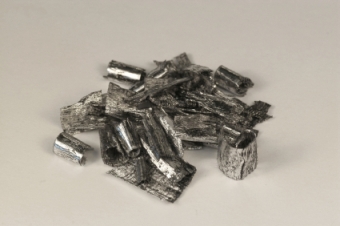Introduction to the Different
Forms of Magnesium Supplements
Our modern diets (and modern farming methods) may result in us being deficient of necessary nutrients. Vital trace minerals are missing in our daily food consumption, take, for instance, Magnesium. Magnesium levels in over-processed foods tend to be low. Magnesium supplements are a form of counteracting low levels of magnesium, attempting to balance the odds, in your favor. Some supplements come in specialized structural forms that make them easily absorbed by our bodies, while others are slow releasing, some contain blends of other trace elements like calcium and potassium.
The most common types of magnesium supplements include Magnesium glycinate, magnesium taurate, magnesium malate, magnesium citrate, and magnesium threonate. These are the most commonly available and we’ll look into each.

There is a plethora of information on this website about how magnesium deficiency can be detrimental to the body. This article is just an introduction into the major types of magnesium supplements that are available on supermarket shelves.
Different Types of Magnesium Supplements
Most trace elements function in our bodies as co-factors, i.e., a metal active group bound in a protein molecule. Magnesium’s ability to be used up by the body is also co-dependent on other compounds, most noteworthy being calcium, vitamin D, and K2. Most of these compounds, as well as magnesium, are found locally in many foods. Thus, it is essential to try as much as possible to obtain them from your diet, before deciding to use supplements. Natural magnesium found in food is often the easiest to absorb requiring no major reactions. With supplements there is always an aura of uncertainty, not to mention reported side effects.As promised, here is a candid look at some of the common magnesium supplements out there.
Magnesium Glycinate
Magnesium Glycinate, as the name suggests is a combination of magnesium salt and the amino acid glycine. Within this compound, coon variations exist which include: magnesium diglycinate and magnesium bisglycinate. These magnesium forms are the all-around, easily absorbed in our bodies.Health professionals usually recommend Magnesium Glycinate to patients who desire to improve or boost their magnesium levels in the blood, treating low magnesium levels.
Magnesium Oxide
Magnesium oxide is commonly used to treat heartburn, indigestion and stomach acidity. Magnesium oxide is also the ideal candidate to reduce constipation due to its low bioavailability.Commonly referred to as milk of magnesia, magnesium oxide reacts with water to form magnesium hydroxide, an alkaline compound that neutralized high acidic levels associated with digestion. Magnesium oxide, however, is not recommended to treat magnesium deficiency, rather, to ensure optimal functioning of the digestive tract and ease of bowel movements.
Magnesium Citrate
Magnesium citrate is a magnesium salt compound with an acidic pH, commonly used as a food additive. Magnesium citrate regulates body acidity and when taken, it may increase water content in our colon, easing bowel movements. The salt is often given to patients undergoing colonoscopy treatment as well as those on low or non-oxalic diets, assisting the body to eliminate oxalic acid effectively.Magnesium citrate is ideal for those seeking to regulate and ensure optimal magnesium levels in their blood.
Magnesium Malate
Magnesium Malate is also another compound of magnesium bound to malic acid. Malic acid, commonly found in fruits, alleviates fatigue and associated conditions i.e., depression. It also helps manage cardiovascular disease and diabetes. Malic acid is a vital product of the Kreb’s Cycle (a biochemical reaction that produces most of the energy in cells). Thus, Magnesium malate addresses instances of low energy and chronic fatigue syndrome (depression).Magnesium Taurate
Magnesium taurate is another compound of magnesium salt bonded to an amino acid, taurine. The amino acid taurine promotes longevity, balances electrolyte levels in our blood, boost immune functioning and significantly reduces the risk of having a heart attack. Moreover, magnesium taurate supplements aid in managing depression, preventing neurodegenerative disorders, migraines and improve vascular system health.Additionally, the amino acid taurine improves cognitive functioning and memory and therefore, magnesium taurate is also suited as a supplement for improved brain health.
Magnesium Threonate
Yet another, magnesium bonded to an amino acid salt compound. Magnesium Threonate is a novel form of magnesium, developed by MIT that is highly effective in treating neurodegenerative conditions like Alzheimer’s disease. It was developed as a form of magnesium that is easily absorbed by the brain and marketed as a nootropic (enhancers of cognitive functions, i.e., short-term memory, and heightens alertness). Magnesium Threonate is a synthetic compound and patented product making it more expensive than other supplements.Magnesium Supplement Side Effects
The introduction of magnesium supplements to your diet generally has little or no side effects, however, people with poorly functioning kidneys may have issues eliminating the excess magnesium. As such health experts don’t usually recommend magnesium supplements to people with renal conditions.High magnesium doses increase colon evacuation and to an extent, cause diarrhea. This is not alarming, but medical advice should be sought if diarrhea persists after reducing magnesium supplements intake.
Magnesium supplements may interact with antibiotics, insulin, antacids, diuretics, and certain hormonal replacement therapies. If you are presently using any of the aforementioned medication, it is wise to consult your doctor first before beginning any magnesium supplementation.
It may be important to choose the ideal magnesium supplementation, depending on your specific requirements. As always, please consult your health care professional to ensure that magnesium supplementation is right for you and, if this is the case, which form of supplement you should be taking.
